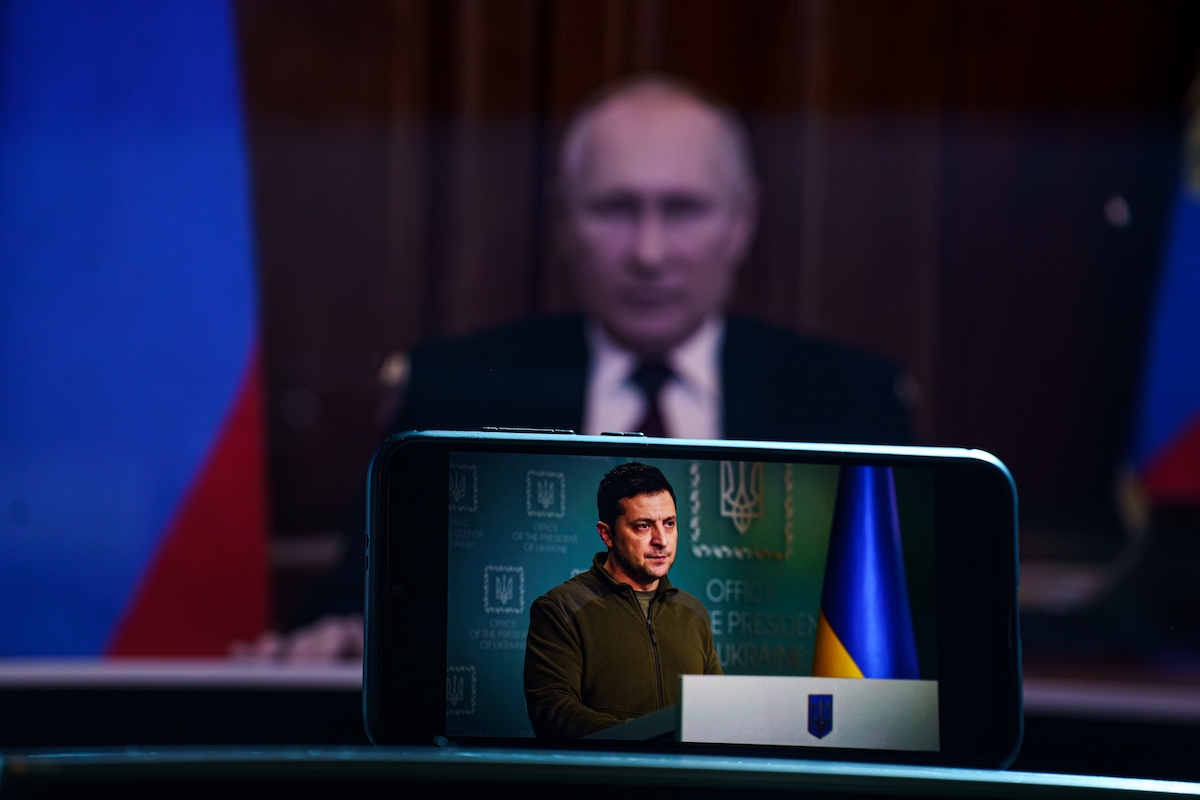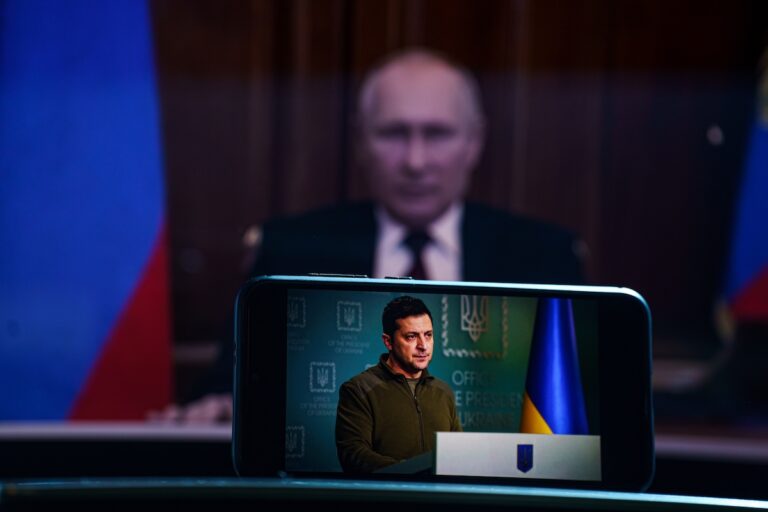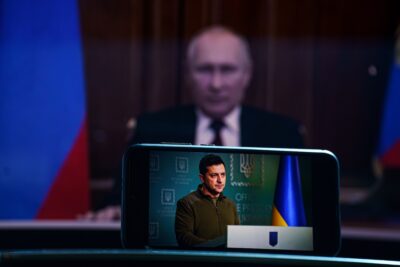New GLOBSEC report, GLOBSEC Trends 2022, shows that Ukrainian President Volodymyr Zelensky is four times more popular than Vladimir Putin. On average, 66% of respondents perceive Volodymyr Zelensky positively, compared to only 15% viewing Putin favourably and 78% unfavourably.
No strong consensus over the response to war
While the recognition of Russia as the aggressor is shared by a majority – 64% of respondents in CEE believe Russia is primarily responsible for the war in Ukraine and 81% say Russia had no right to invade Ukraine – a clear consensus over Ukraine’s integration to Western structures or responses to the war is lacking. In 6 of 9 countries, a majority of respondents would welcome Ukraine to be part of the EU and/or NATO. However, in Slovakia, Bulgaria and Hungary more people would prefer Ukraine to stay neutral.
Even greater divergence was measured in the attitudes towards responses to the war. For example, while in Poland, 88% of respondents agreed with imposing strongest possible sanctions on Russia even at the cost of increased prices, in Bulgaria, only 38% were aligned.
“The differences can be assigned to a range of factors from political to social and economic ones. But one thing is evident – we see a clear penetration of pro-Kremlin and Kremlin-originated propaganda into the societies mostly in Bulgaria, Romania, Hungary and Slovakia, where a considerable part of respondents believed manipulative narratives and messaging currently spread by the Kremlin,” explained Dominika Hajdu, Policy Director at GLOBSEC Centre for Democracy and Resilience.
Stronger adherence to the West and its structures
The change of the security environment in the region has not only impacted the perception of Russia – in 7 of 9 countries 73% of respondents perceive Russia as a security threat to their country. Regional outliers are Hungary and Bulgaria, where only 45% and 33%, respectively, think similarly. The current situation also impacted the attitudes towards the West and its structures. 79% in CEE are now backing NATO membership across the region with 71% understanding the role of the NATO as a security guarantor. Also, everywhere except for Romania, the willingness to position one’s own country on the West increased by, on average, 10 percentage points.
The strong and decisive role of the US has similarly been recognised by the region. The perception that the US is a strategic partner has soared by 10 percentage points since 2021. On the contrary, such perceptions declined for Germany.
“The invasion of Ukraine impacted Central and Eastern European perceptions regarding the most important strategic partners for their countries. These attitudes have likely been influenced by a confluence of factors, but the war dynamic and insecurity, have spotlighted the fact that CEE countries rely on the US for protection against possible aggression and economic downturn resulting in the US catching up with Germany,” added Katarína Klingová, Senior Research Fellow.
Conspiracies and disinformation
Nonetheless, the long-term pro-Kremlin disinformation in the information space bears its fruits and there are countries where many fell victim to war propaganda. On average 26% of respondents in Bulgaria, Romania and Slovakia believe the West was primarily responsible for the war in Ukraine because it provoked Russia. In Bulgaria and Slovakia, more than 50% of respondents believe conspiracy theories about democracy, such as: “Democracy does not exist, because in reality, hidden elites rule the world.”
“After February 24, the dominant topic of actors spreading disinformation in CEE quickly shifted from COVID-19 to the war. The pro-Kremlin propaganda’s main objectives are now to discredit Ukraine and its leadership, to spread fear and distrust towards Ukrainian refugees, and to play down the scale of Russian atrocities,” said Michal Kortiš, Junior Research Fellow.
More appreciative of democracy
Satisfaction with how democracy works slightly increased everywhere except Romania. Whereas the 2020 polling revealed that a majority in no country, apart from Austria, expressed satisfaction with democracy now satisfaction with democracy boasts majority support in 5 of 9 countries.
“Comparing one’s own situation and comfort of living in a peaceful and free society to the situation in Ukraine – a European country where such life is now perceived a luxury, can translate into some parts of societies being more grateful for the peaceful and free systems they live in,” added Jana Kazaz, GLOBSEC research fellow.
The opinion polling was conducted in March in 9 countries of Central and Eastern Europe on the representative sample of 1000 respondents per country (altogether 9,000 respondents), in Bulgaria, Czechia, Hungary, Estonia, Latvia, Lithuania, Poland, Romania and Slovakia.
Read the whole study: www.globsec.org







